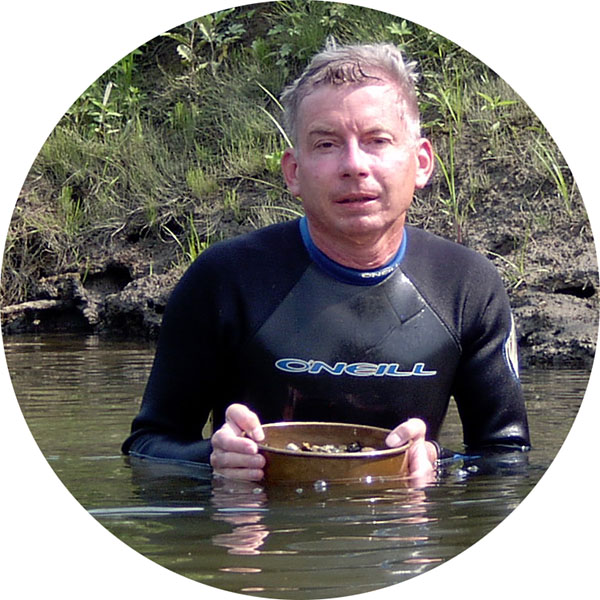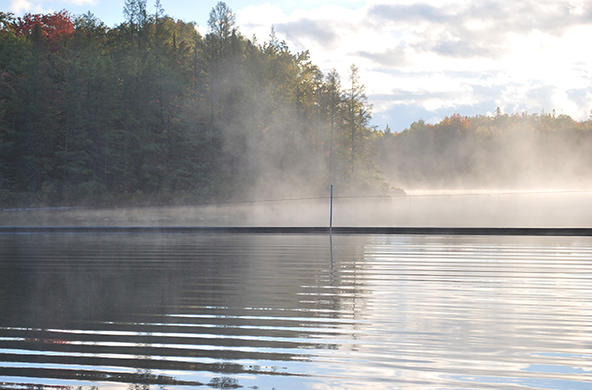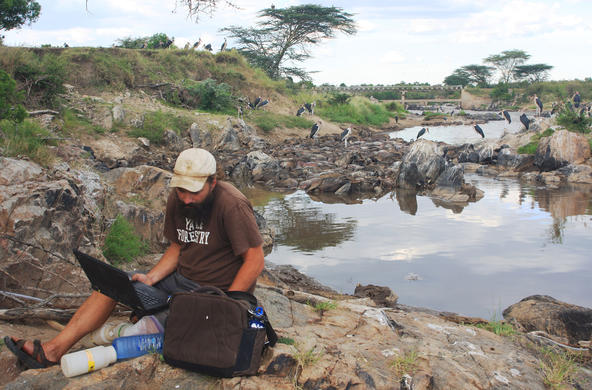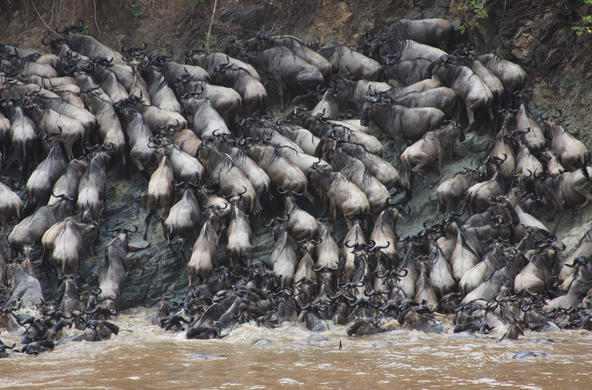Everybody seems to know about food webs these days — how primary producers capture the energy of the sun, and pass it along to consumers and then on to predators — but I’m not sure that most people really understand what food webs are about. Food webs are not like the pleasant diagrams you see with cute little mice and clever foxes happily playing their roles in nature’s balance. They’re the scariest places that you can imagine.
Here’s a scenario showing how food webs really work:
“It was my turn to go for groceries, which I suppose was only fair — the Thompsons had given me Brandon’s good bike after that grizzly got him last month, and we really needed the groceries. We hadn’t dared to go out the last three nights because the scent of big cats had been so strong. But tonight was going to be a good night — just the hint of a moon, and no wind to drown out the sound of stalking paws.
I was just going to the crummy neighborhood store, so there really shouldn’t be a problem anyway. I’d like to be able to go across town to the big supermarket — the food was so much better there — but Mom wouldn’t let me, not since the wolves had gotten Dad and Sarah on the other side of town. I spread lampblack over my face and hands as I waited for it to get good and dark.
“I knew that I would be nearly invisible in the faint moonlight, and I had done what I could to disguise my scent (you don’t want to know the details), but I was afraid that my constant cough would give me away. It had been so damp in our underground home lately that it seemed like we had colds all the time. I wished we still had a house above ground, but no one has built old-style houses since the rocs had moved in and begun to pluck carpenters off of the roof beams.”
Does a food web sound pleasant to you now?
You may think this little story is overblown, but it is an accurate description of life in the food web. Most animals are confronted with predators that are numerous, efficient and deadly. For instance, when we freshwater ecologists try to figure out how the invertebrates that live in lakes and streams die, we find that predators kill most or nearly all of them.
In response, prey have evolved a wide range of tactics to avoid getting eaten, or more precisely, to avoid getting eaten before they reproduce. Zooplankton have become nearly as clear as the lake water they live in to avoid the fatal gaze of fish. Speckled moths fade away against lichen-covered tree bark.
Little animals grow costly and ungainly spines when the water smells like predators, or hide away in dark crevices or deep water until the sun sets. They avoid the places where predators live, even if that means forgoing the richest feeding grounds. Mayflies exposed just to the smell of fish grow to adulthood and emerge to lay eggs more quickly than those that grow up without their fishy predators. Animals become vigilant and skittish when the wind carries the scent of predators, or a moving shadow (a shadow means sudden death) passes. And still most of them die in the maws of their predators.
I suppose this is an obvious point, but being in a food web means that, while you’re out gathering your food, you are being stalked by your own predators. So the next time you see those little mice and clever foxes, think a little about what it is really like to be part of a food web. But don’t think about it too much — it may give you nightmares.







